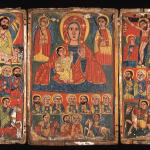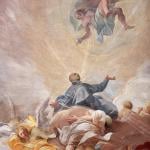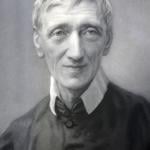Last updated on: January 8, 2015 at 7:08 am
By
CNA Daily News
Vatican City, Jan 8, 2015 / 12:08 am (CNA/EWTN News).- With a style that meets the need for a new missionary zeal, Pope Francis is representative of the new evangelization, says one theologian and guest speaker for the upcoming annual gathering of Ratzinger's former students. “The new style represented by Pope Francis is the first to merit the title of new evangelization,” said Msgr. Tomas Halik in an interview with CNA. “If this progress, which has aroused so much hope in the Church – and outside [it] -- were to stop, it would have tragic consequences, both for the Church and for the world,” he said. A Czech priest who was persecuted during the Communist era, Msgr. Halik has dedicated most of his theological research to the dialogue with non believers and faith seekers. He was chosen as the ‘special guest’ lecturer for the next meeting of the Ratzinger Schuelerkreis, a circle of former Joseph Ratzinger’s students which gathers annually in August. His speech for the meeting will be on the theme: “How to speak about God in the contemporary world.” “Today, it is important to speak about God because there are many pretenders to God’s throne. To proclaim belief in God, and particularly an emphasis on the uniqueness of God, means refusing idolatry and attempts to proclaim relative values, such as the nation, prosperity, power, health, success and many others, as being absolute,” Msgr. Halik stressed. The monsignor identified the roots of today’s spiritual crisis in “the failure of religious institutions: in fact, they are unable to inspire the lifestyle and thinking of people of today in a credible and intelligible fashion.” Msgr. Halik explained that “there is a greater demand for spiritual life than in the past, but the offer on the part of the Church is often not enough to meet that demand.” The “parochial” type of Christianity, he said, “is losing its social and cultural biosphere, and it will probably become weaker”. However, he added that “there are increasing numbers of ‘seekers’, and the future of Christianity (and in a sense, the future of our civilization) depends on the extent to which the Church will be capable of devoting itself to those ‘seekers’. “It will not be a matter of missionary activity in the traditional sense of bringing ‘seekers’ into existing Church structures. It will be a ministry of ‘accompanying seekers’. More than pastors, the Church nowadays needs spiritual teachers (a role described in the Eastern Churches as starets or elder). More than preachers, it needs those who are capable of offering ‘spiritual exercises and fraternal conversation,” Msgr. Halik said. A lecturer in many universities world-wide and well-known author, Msgr. Halik was awarded in 2014 with the Templeton Prize, an award given to those “who have contributed to elevate the world’s spiritual profile.” Hailing from a country where 70 per cent of people are self-proclaimed atheists, the Czech priest said he would not “like to be a priest in a country where faith is taken for granted.” He underscored that “the most difficult sort of evangelization is in an environment where people think they already know everything, or almost everything, about God.” Msgr. Halik explained that often “most of the people who consider themselves atheists are merely rejecting their own (or uncritically adopted) primitive conceptions of God, faith and the Church.” He added that such persons “are surprised when I tell them that, in a certain respect, I profoundly agree with them: namely, that the god they reject truly does not exist.” “What worries me more is that many of those who regard themselves as believers truly do hold to such primitive concept,” Msgr. Halik stressed. “Evangelization is the adventure of uncovering the unknown Jesus,” he continued, “and in that ‘atheists’ are much more interesting partners than traditional Christians.” According to Msgr. Halik, the basis of evangelization is “inculturation, creatively embodying the message of the Gospel in a lived culture, in people’s way of life of thinking. Evangelization without a dialogue with culture is nothing but religious propaganda and indoctrination.” “When I see people being manipulated in emotional religious mega-shows at stadiums, I repeat to myself the Word of the Bible: God was not in the whirlwind. The Gospel is a seed that must be sown deeply in good soil,” he said. Msgr. Halik stressed that Church needs a new ecclesiology, a new self-perception” to rise again, commenting Pope Francis' commitment to calling back those who have moved away from the Church. “Many prodigal sons have the feeling that, if they return, they will not find the open arms of a generous and merciful father, but the wagging finger of the embittered elder brother. Thank God, Pope Francis is changing much of that image of the Church,” Msgr. Halik said. Pope Francis' moves toward reform “are reminiscent of the ‘cultural revolution’ of Francis of Assisi,” Msgr. Halik said. “The important thing is, however, not simply to adore the Pope, but like him to take seriously God’s challenge to ‘Go and repair my house, which is failing into ruin.'” Read more














